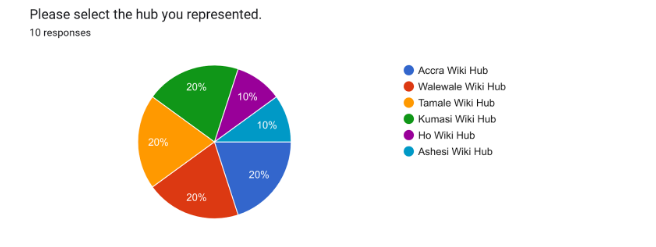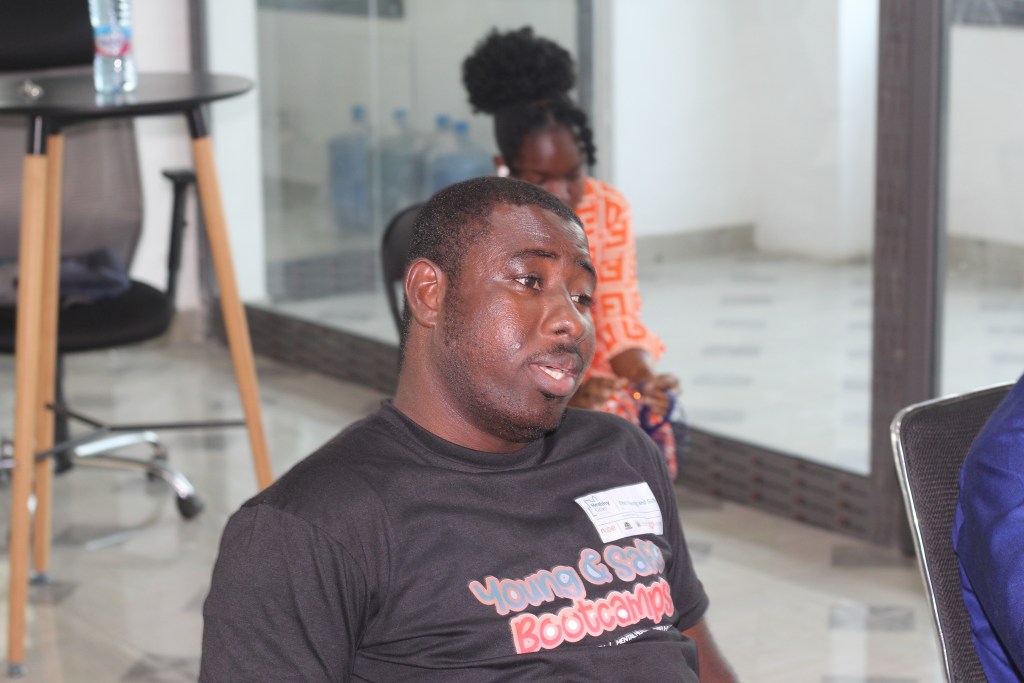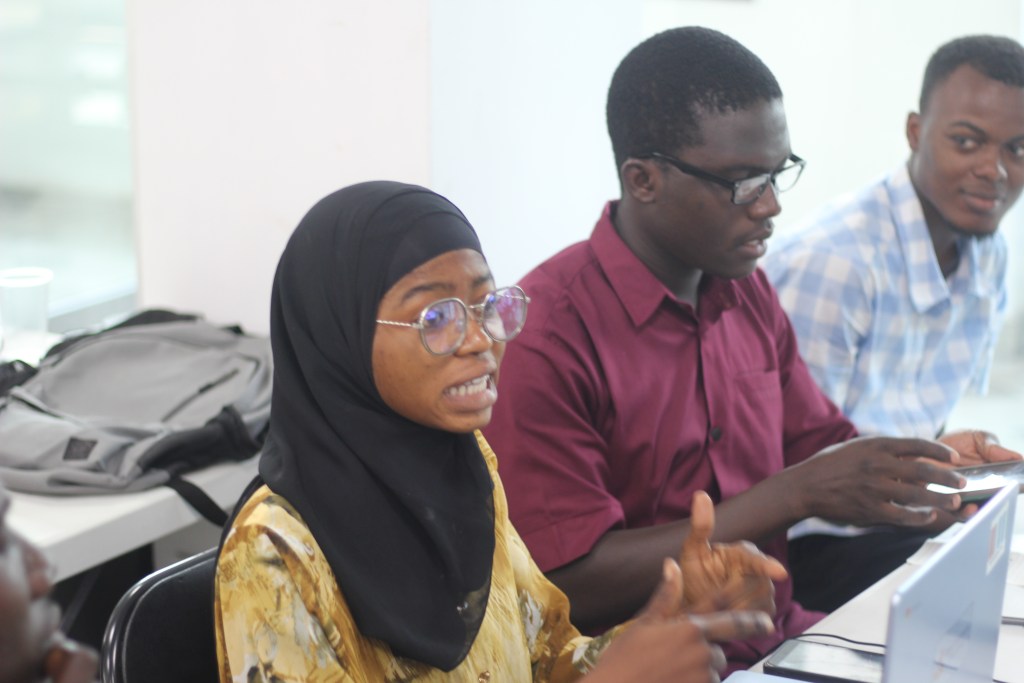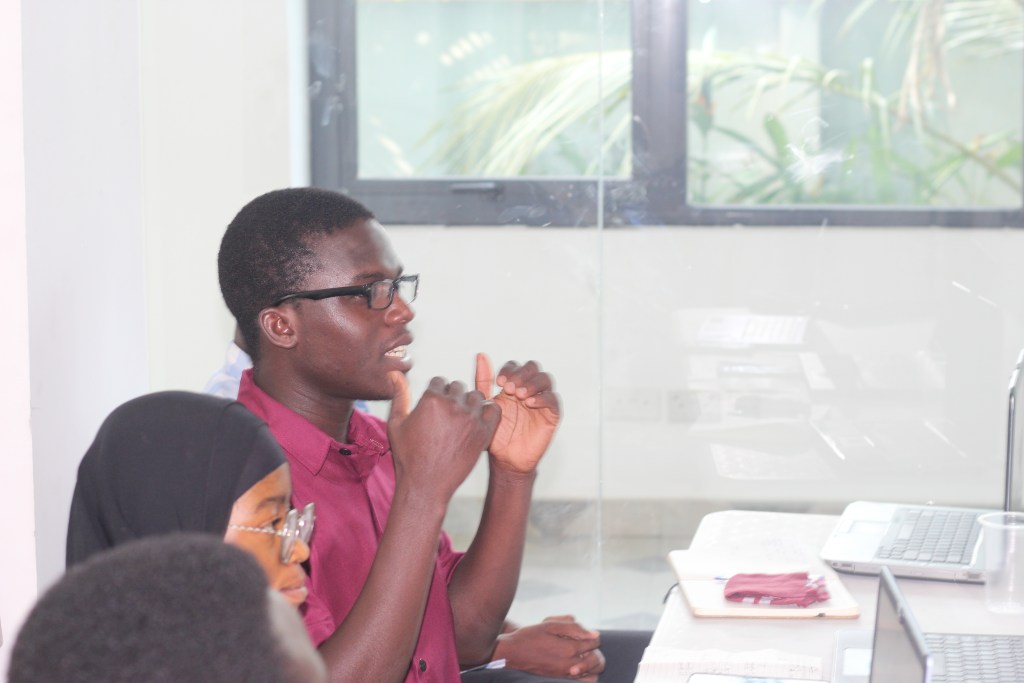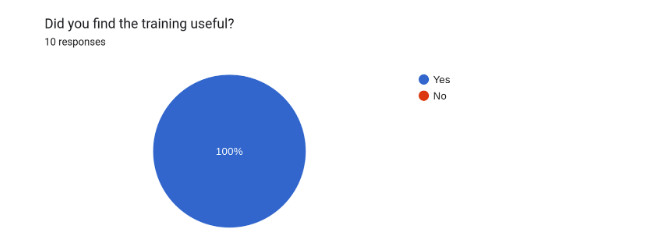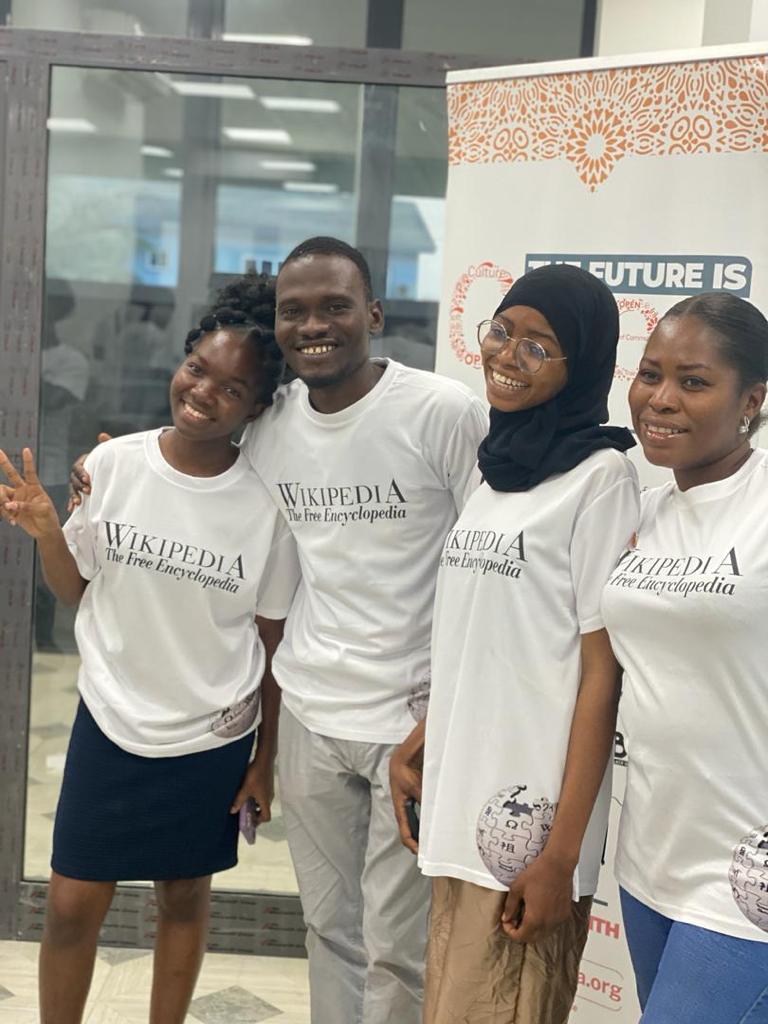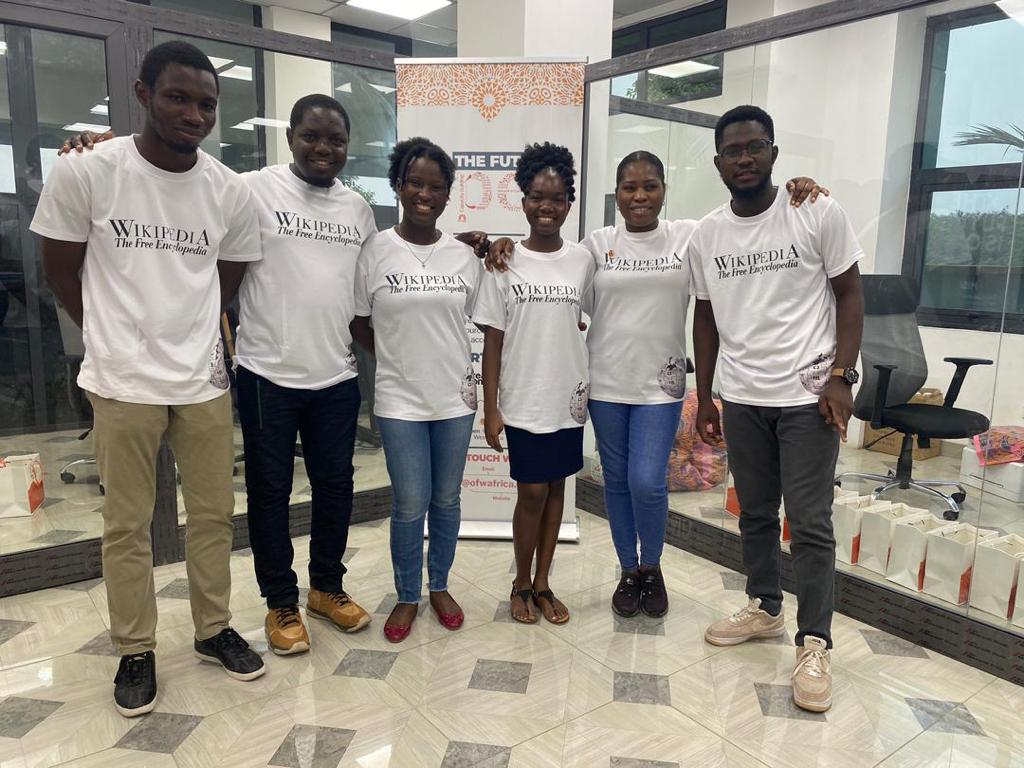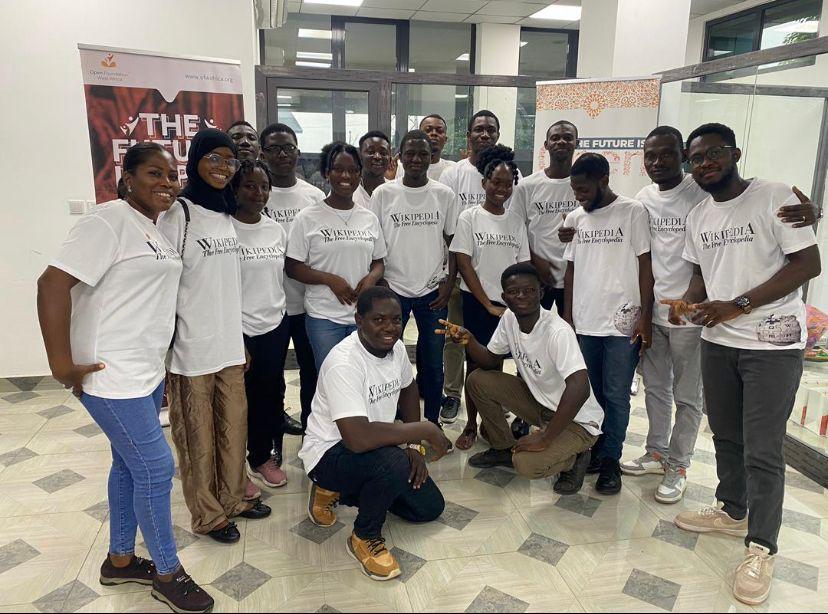Open Foundation West Africa (OFWA) recently hosted its Training of Trainers workshop to provide Community Hub Leaders with the necessary skills for efficient management and community service, in line with its goal of promoting growth and empowering communities. We trained 12 hub leaders from 6 hubs, specifically hub/club leaders from Accra, Ho, Walewale, Tamale, Kumasi, and Ashesi Wiki Clubs.
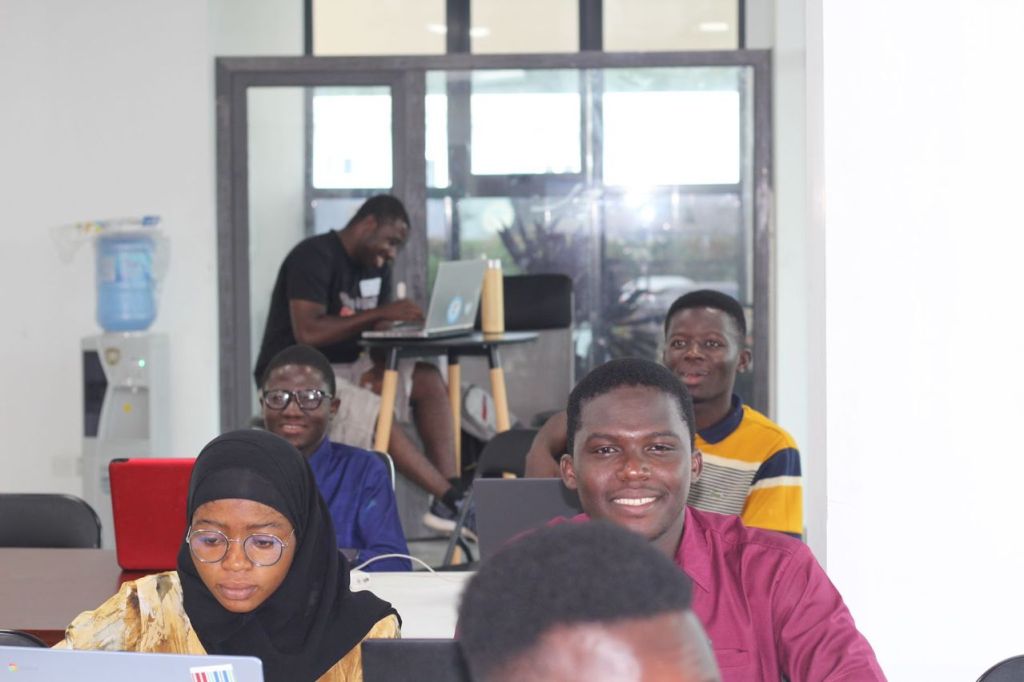
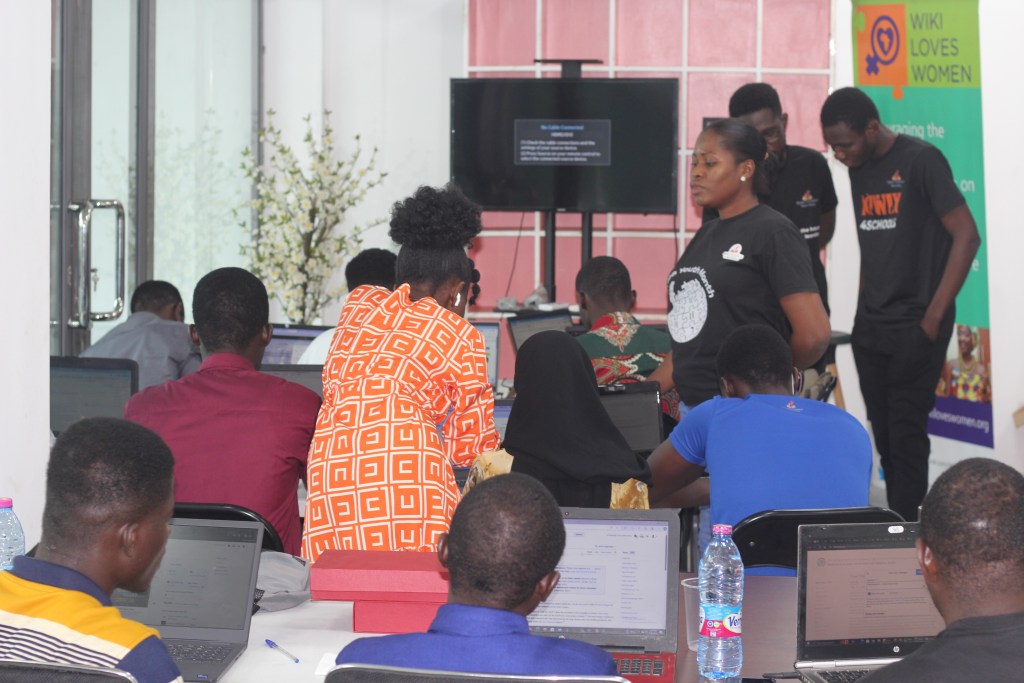
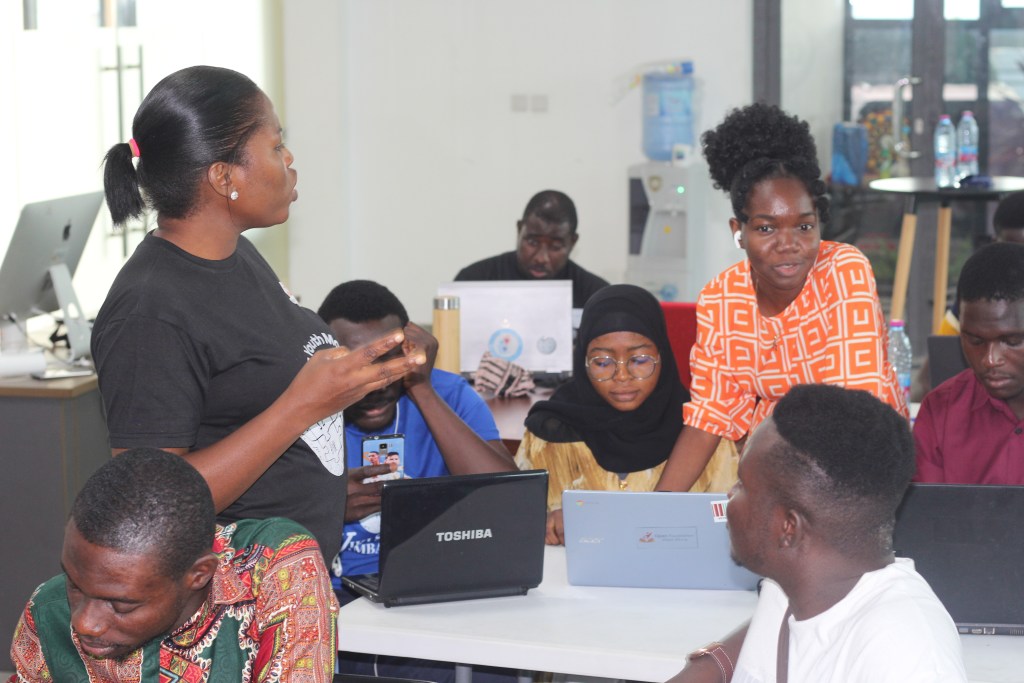
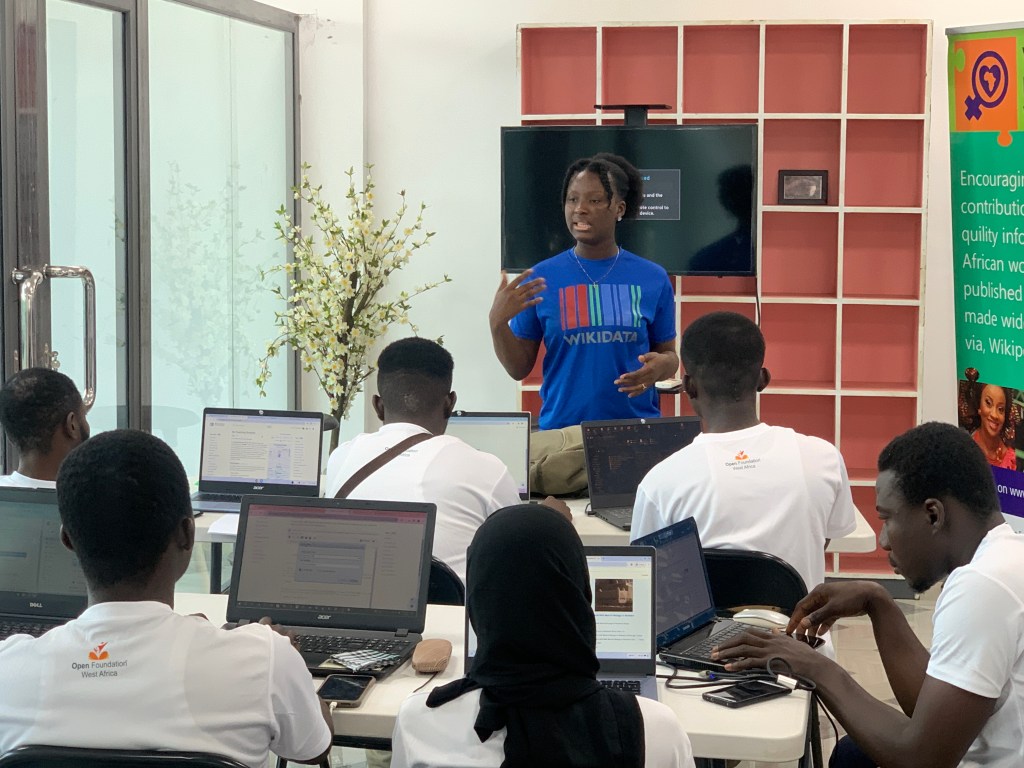
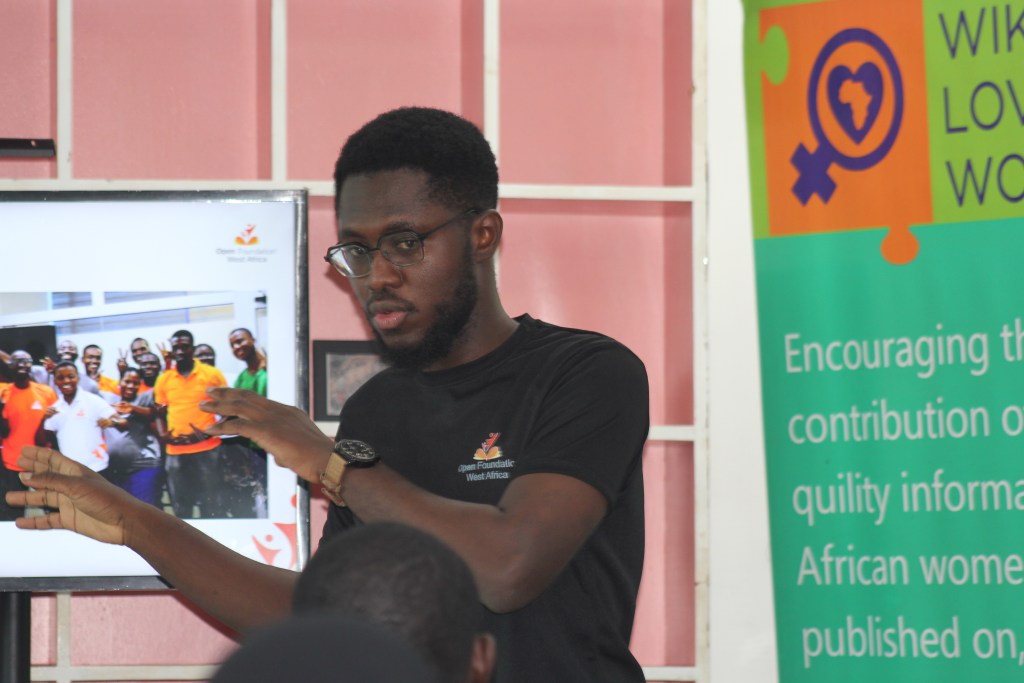
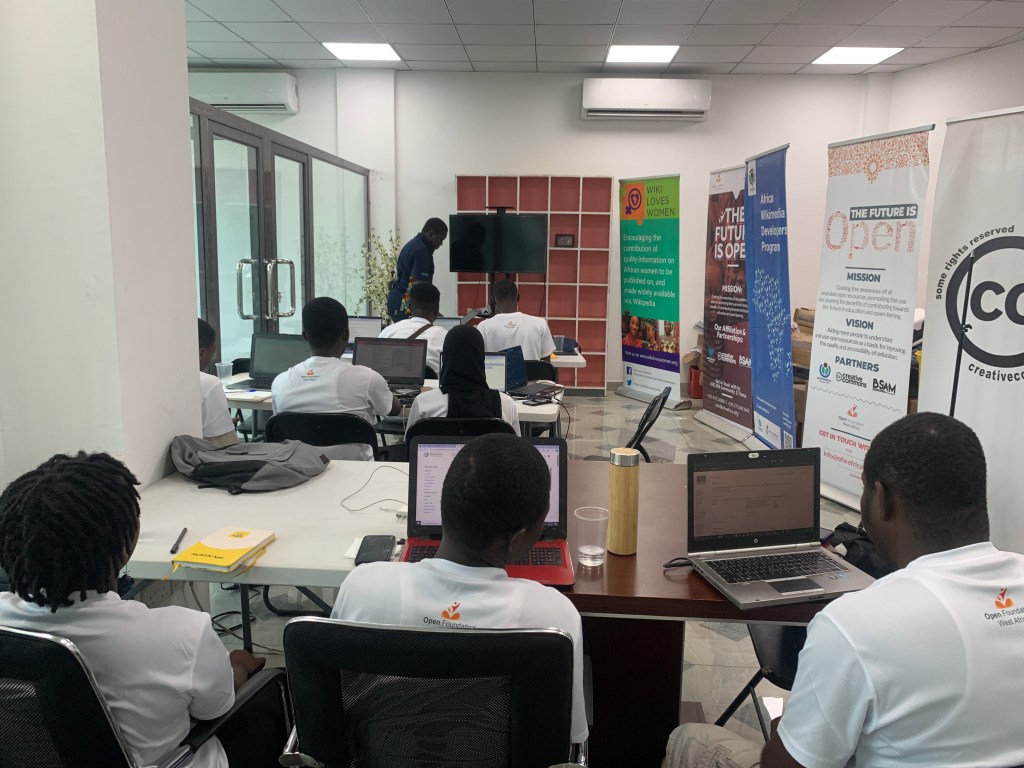
The workshop went beyond just training, as opportunities were provided for hub leaders to network, collaborate, and establish teams, as well as essential skill-building and hands-on exercises to empower them to serve and manage their respective communities. Guest trainers from the community were invited in to teach specific sessions, enhancing the training with their knowledge. Some of the sessions that were facilitated by the guest trainers included Wikidata and how to use Wikidata games and tools to improve existing Wikimedia data.
“How to use wiki tools, contributions to Wikipedia, Wikidata, and Wikimedia Commons. I also learned more about ethics in the Wikipedia space. From the observations in this training, I learned how to manage people to be interested.” – Abdul-Rahim Ziblim
Over the years, hub organizers have noted several issues, such as a lack of variety in community activities, frustration with persistent IP blocks on English Wikipedia, a lack of time to solve every hub challenge, and low digital skills, amongst others. The workshop integrated a diversified strategy aimed at equipping the hub leaders with the needed tools and resources to be able to address these problems when they go back to their respective hubs.
“I have been able to connect with other Wikimedians and update my knowledge on Wikimedia.” -Emmanuel Frimpong
During this year’s Training of Trainers (TOT), we placed a significant emphasis on introducing hub leaders to various ways of contributing to Wikimedia projects, drawing inspiration from the Africa Growth Pilot program. We identified that this approach offers alternatives to community problems (such as IP blocks on English Wikipedia, and the lack of sources when initiating new Wikipedia articles), which tend to cut short community interest in contributing to Wikipedia. We believe that equipping leaders with this knowledge and skills can help improve retention and facilitate the smooth onboarding of new members, promoting a sense of belonging, fulfillment, and achievement among their participants.
“I am inspired to now do more and be a contributor. Being a competitive person, I am glad that I have met like-minded individuals who care about making a change in their society.” – Fridah Cheboi
We also emphasized the relevance and impact of contributing to each of the Wikimedia projects and tools.
Furthermore, the importance of community engagement and collaboration was stressed, encouraging leaders to prioritize inclusivity and effectively leverage strong community networks and partnerships. Beyond Wikipedia tools and opportunities within the Wikimedia Ecosystem, hub leaders were equipped with hub management tips, reporting strategies, and engagement techniques, along with access to necessary resources and support.
“Teaching me how my edits and uploads solve solutions in the world.”- Christian Yakubu
“I was an ICT student but this has exposed me to a lot of things – Appiah Constantine”
Here’s a short video of some participants expressing their appreciation on the last day of the workshop.
As the training concluded, participants were empowered and ready to make a meaningful impact in their communities.
“I’ve been fully equipped as expected, I had fun and made new friends.” – Abubakari Moari Kashifatu
“I have been impacted with knowledge I cannot quantify. I can now edit, use, and share on Wikipedia. Wikidata, Wikimedia Commons, how to upload photos, and the ethics involved.” – Lookman Sunday Ibrahim

Can you help us translate this article?
In order for this article to reach as many people as possible we would like your help. Can you translate this article to get the message out?
Start translation
